It’s never been easy to grow up, and Broadway’s newest smlash hit musical explores teenage loneliness and angst with a particularly modern twist. “Dear Evan Hansen” opens with a score that uses the electronic sounds of cellphone notifications pinging and popping to set the mood. As Ben Platt slips onto stage and sits cross-legged on his single bed, hunched over a computer screen in a pose that parents know all too well, it’s clear that this coming-of-age story is set in the age of social media. The play, which opened at The Music Box in December 2016 and is already a financial success, offers insight into how kids interact today, as well as a potent message about how we connect in the digital age.

Evan Hansen is played brilliantly by Ben Platt – an LA native who is just 23, and will most likely win a Tony this year for this role. Evan is a kid consumed with anxiety. In an opening monologue that goes off like a rapidly firing machine gun, he covers sweaty palms, friendlessness, and a failure to talk with the girl of his dreams, with a nerd’s precision and compulsion that is entirely endearing. However lost to Loserville this boy is, we’re behind him all the way.
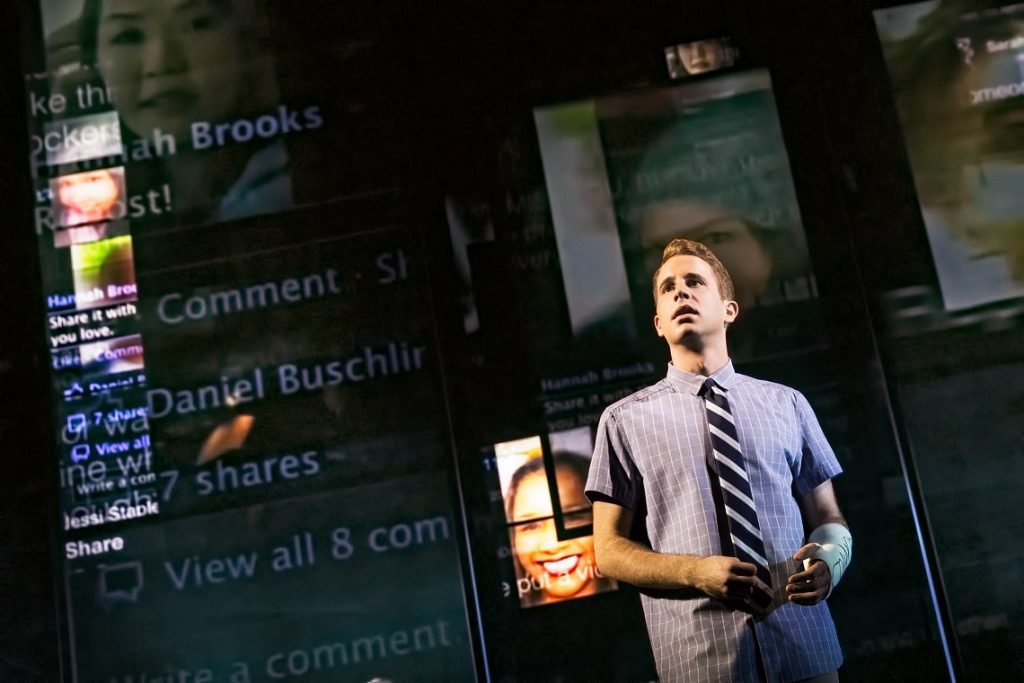 And boy, does our loveable loser get himself into a mess. Charged by a shrink he doesn’t want to go to with writing himself a letter (about how the day is going to be just “great!”), Evan’s treatise is stolen from the computer by a despondent boy who, very soon after, kills himself – with the note in his pocket. This would not seem to be the stuff of musicals, and yet we watch with fascination as Evan allows himself to be dragged into the center of the drama, allowing everyone thinks that he is the dead boy’s best friend, because of the note.
And boy, does our loveable loser get himself into a mess. Charged by a shrink he doesn’t want to go to with writing himself a letter (about how the day is going to be just “great!”), Evan’s treatise is stolen from the computer by a despondent boy who, very soon after, kills himself – with the note in his pocket. This would not seem to be the stuff of musicals, and yet we watch with fascination as Evan allows himself to be dragged into the center of the drama, allowing everyone thinks that he is the dead boy’s best friend, because of the note.
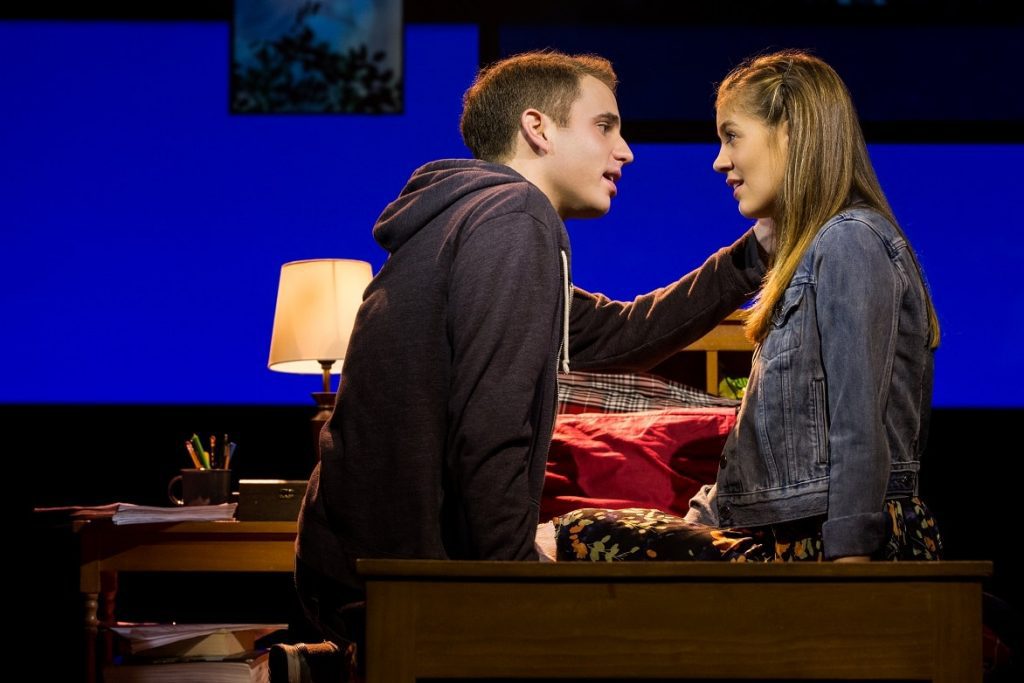
Laura Dreyfuss and Ben Platt
He lets himself be swept up in the growing drama because, well…his prefrontal cortex has not fused and he can’t anticipate the consequences of the pile of lies. But, also because the girl of his dreams is the dead boy’s sister, Zoe. And then there is the fact that he is a child whose Dad departed when he was seven, and whose Mom works all the time. Evan longs for a nuclear family as needy as Zoe’s and slips into the ruse. He gains popularity at school as the heralded best friend of the dead boy, and even leads the Kickstarter campaign to revive the orchard where he and the dead boy (supposedly) hung out.
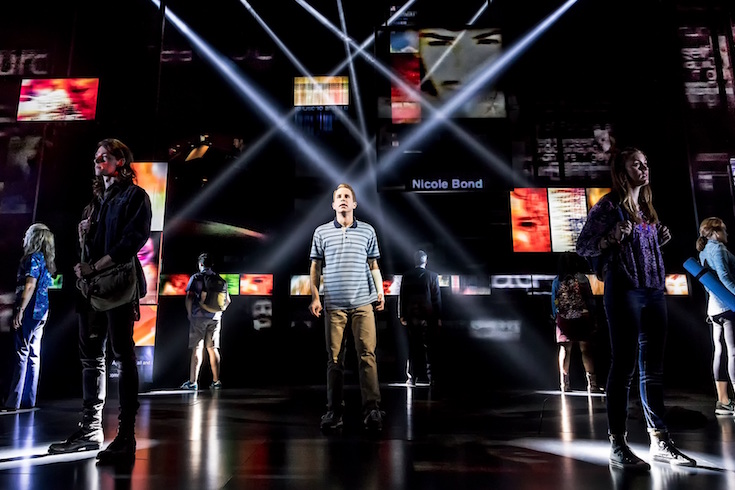
Of course, the type of misdirection can’t end well, but along the way we learn a great deal about how kids interact and see each other in an age of social media. All the kids feign more feelings for the dead boy than they have – a natural reaction for kids who are trying to comprehend the fact that someone their age is gone. Although connected on the surface, most kids in this play are as lonely and confused as teens have always been. They may present themselves as busy, but behind their crafted self-images like a generation that (may be) more isolated than we realize.
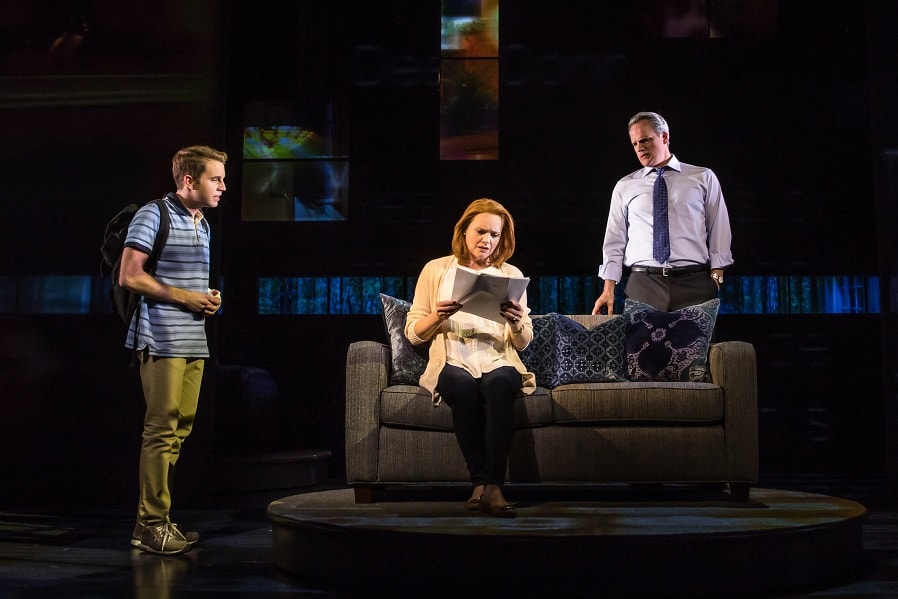
It’s the fresh face of Platt and the bouncy melodies of Benj Pasek and Justin Paul (who did the songs in La La Land) that make it all work. Watching Evan get himself into and out of trouble presents many opportunities for jokes – he has the requisite sarcastic sidekick to provide the comic relief, and his own jerky iterations of manhood on the way from nerd to hero are a delight to behold. Platt uses his whole body to show us his vulnerability, but the voice that emanates from his tentative frame is anything but fragile. He can really sing – has command of octaves of tonal range, a flawless delivery whether whispering or belting a ballad that is a delight to behold. Platt telegraphs exactly what it feels like to be a vulnerable, gawky teen-ager – the terror in any engagement, the eagerness to be accepted, the fear that no one sees him for who he is, and the dread of being alone.
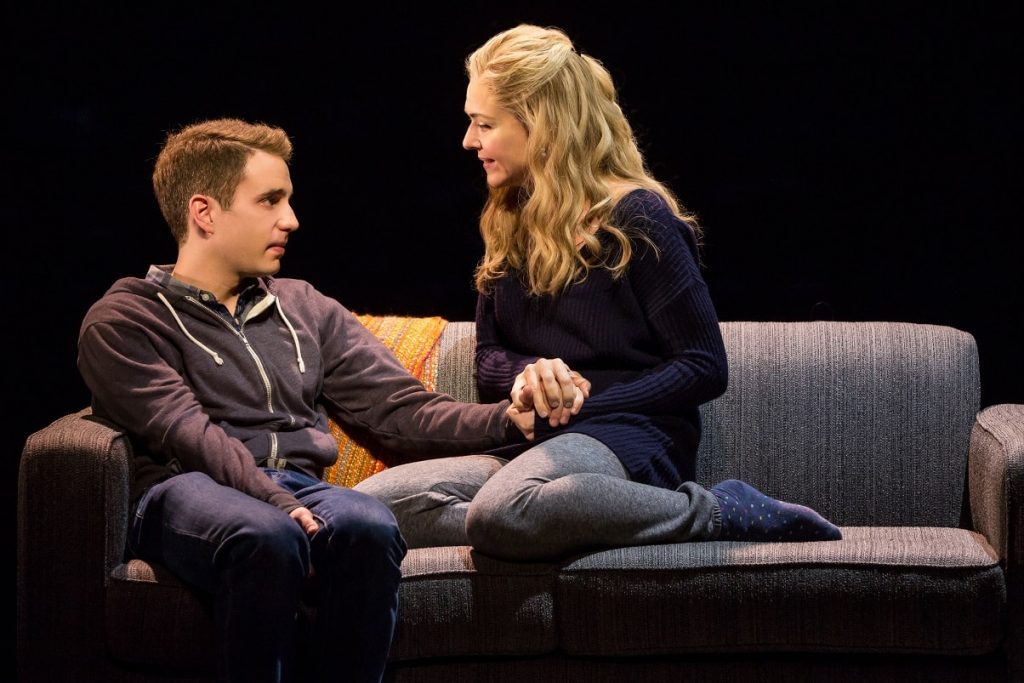
Ben Platt and Rachel Bay Jones
And then, there are the tears. At the center of the musical is the story of a boy who killed himself and we watch his family members trying to piece together their individual role and responsibility in his tragic life. Evan’s relationship with his mother is fraught (she’s always working), but their reconciliation provides one of the most emotional numbers in the show.
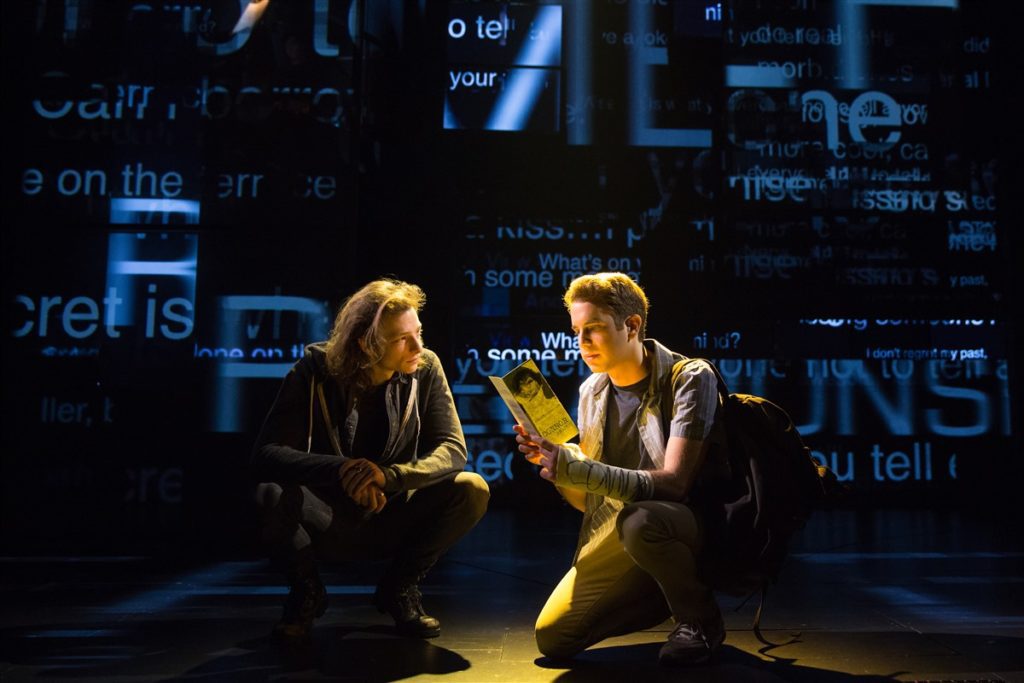
Broadway doesn’t shy away from tough topics (remember “Book for Morman”, and “Fun Home”?) and it’s risky to put mental illness front and center in a contemporary musical. Focusing on suicide and loneliness in kids is particularly important in the digital age, especially because we are raising a particularly anxious generation. But, showing the dead boy as the darkest color in the ever-shifting rainbow of teenage emotion helps. We see where Evan is on the spectrum (it is revealed that he himself has come close to suicide), and his careful steps back to truthful relationships provide the story’s resolution.
The final act takes place outdoors – the Kickstarter campaign triumps and the orchard is saved. We watch as Evan walks among the growing trees. The journey from of an opening seeped in technology to a field of growing apple trees works as a metaphor – we need nature, and contemplative time in order to be human. We need to get out from behind the screens in order to be truly connected.
“Dear Evan Hansen” – The Music Box Theater, NYC
“Dear Evan Hansen,” with songs by Benj Pasek and Justin Paul, a book by Steven Levenson and direction by Michael Greif
Here is a link to the songs – enjoy!

